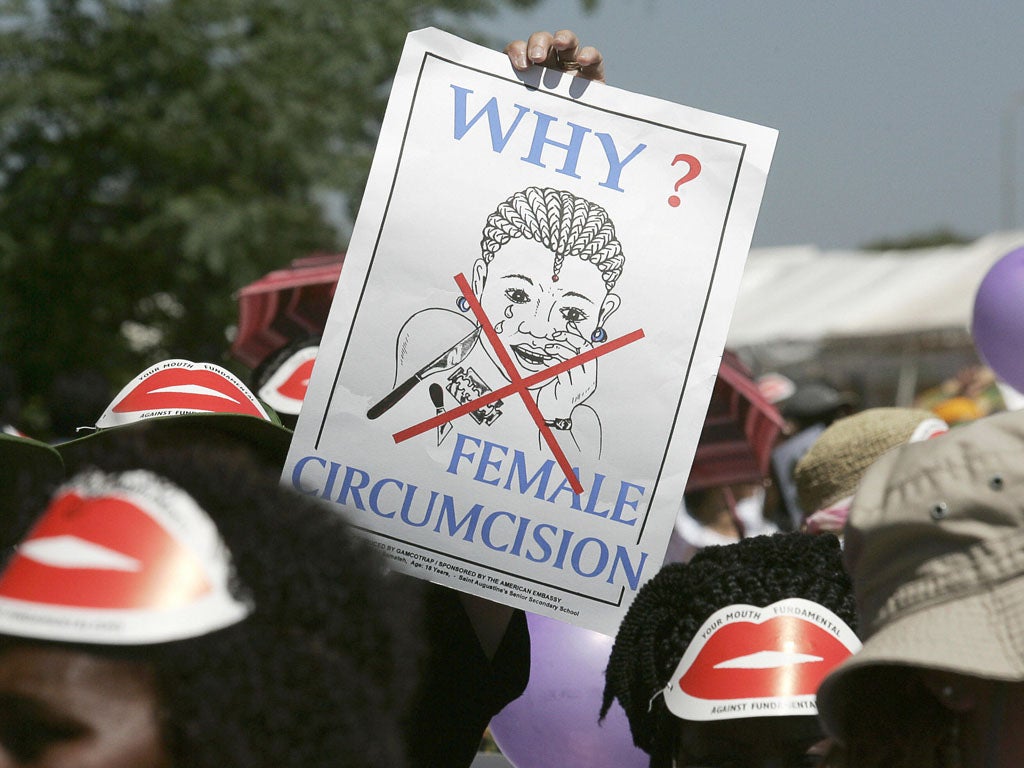Teenager dies during illegal female circumcision procedure in Egypt
The hospital has been shut down and two doctors have been referred for prosecution

A teenage girl in Egypt has died in hospital while undergoing an illegal female circumcision procedure.
Manar Moussa, 17, and her twin sister both underwent the surgery in the city of Suez on Saturday. Manar died of a suspected stroke while under anaesthetic. Her sister survived, a senior health official said.
The Suez city health inspector in charge of issuing burial permits, who had examined Manar’s body, reported his suspicions to health and security authorities, though a forensic report determining the cause of death is yet to be released, health ministry official Lotfi Abdel-Semeeia said.
Despite the procedure having been criminalised in 2008, it is still widespread in Egypt, with 90 per cent of women understood to have undergone some form of female circumcision. The practice is centuries old and believed to control a woman’s sexuality.
Mr Abdel-Semeeia said the hospital, which had already received several warnings over its poor health record, had been ordered to close on Monday.
Two doctors and the head of the hospital have been referred for prosecution. They face allegations of conducting a banned procedure and causing Manar’s death.
Vivian Fouad, the head of a health ministry program to combat female genital mutilation, called Manar’s death a "crime committed by criminals known as doctors,” adding that younger girls are usually the victims of this procedure.
Last year saw the first case in which a doctor was charged, convicted, and sentenced for carrying out female circumcision, after a girl's death two years earlier. The doctor was sentenced to two years in prison, which Ms Fouad said had served as "deterrence."
Rights groups have criticized the law because it considers the practice a misdemeanour punishable by up to two years in prison. The Egyptian Initiative for Personal Rights, along with Ms Fouad, has called for the crime to be reclassified as a felony.
In 2012, The U.N. General Assembly unanimously approved a resolution calling for a global ban on female genital mutilation.
Additional reporting by AP
Subscribe to Independent Premium to bookmark this article
Want to bookmark your favourite articles and stories to read or reference later? Start your Independent Premium subscription today.

Join our commenting forum
Join thought-provoking conversations, follow other Independent readers and see their replies